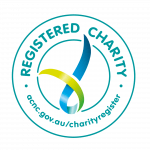The LNP has committed $1 million over four years to support Impact Community Academy, a Special Assistance School focused on wellbeing for students who face barriers to mainstream education. Set to open for Year 11 students in Term 2, 2025, the academy aims to re-engage and empower local youth for success.
- Stronger Together
- Support & Wellbeing
- Disability & NDIS
- Mental Health
- Families & Parenting
- Support for Individuals
- Employment & Training
- About Us
- About us
- Get Involved
- Governance
- Social Enterprises






